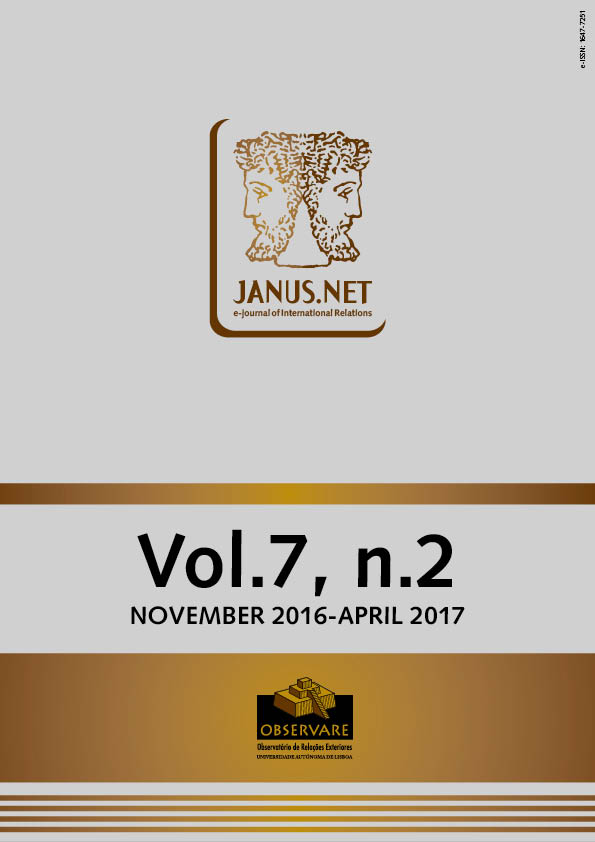This paper focuses on the analysis of the multilateral regime of climate change from the perspective of the regimental complex. It examines the role of the BASIC countries in the signing of the new climate agreement in Paris and its relationship with traditional powers like the United States and the European Union. The role of the BASIC countries has been crucial to close a new deal, and in exchange for that power, the group has accepted two conditions: a bottom-up agreement and nationally determined contributions as a vehicle for climate action. Similarly, the diffusion of power in the international system means that although the triangle formed by the BASIC-EU-US has been critical to achieving a new climate agreement, other actors also played an important role in the negotiation process of COP 21.
INTERNATIONAL CLIMATE FRAMEWORK IN THE MAKING: THE ROLE OF THE BASIC COUNTRIES IN THE NEGOTIATIONS TOWARDS THE PARIS AGREEMENT
Holder of a PhD in International Relations, of an MA in Human Environmental Systems and of a Bachelor Degree in International Relations. Researcher at CONICET (Argentina), advisor and climate negotiator of the Ministry of Foreign Affairs, International Trade and Worship of Argentina. Negotiator of the Paris Agreement. Research areas: Latin American foreign policies, environmental policies, and climate change.
Holder of a Bachelor Degree in International Relations, Universidad Nacional de Rosario. Research areas: climate change, theories of International Relations.
Resumo
Palavras-chave
Como citar este artigo
Bueno, María del Pilar; Pascual, Gonzalo (2016). “International climate framework in the manking: the role of the Basic Countries in the negotiations towards the Paris Agreement”. JANUS.NET e-journal of International Relations, Vol. 7, Nº. 2, November 2016-April 2017. Consulted [online] on the date of last consultation, http://hdl.handle.net/11144/2787
Article received on 1 February, 2016 and accepted for publication on 9 September, 2016















